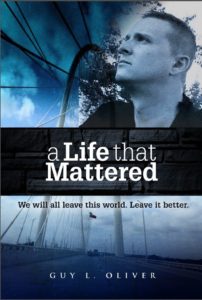The torment of precautions often exceeds the dangers to be avoided. It is sometimes better to abandon one’s self to destiny.
– Napoleon Bonaparte
 There is a fable that suggests the best artists are tormented and there is, further, a rather ubiquitous belief that to be a really good artist, torment is prerequisite. That the reason they paint so beautifully, write such stirring lyrics and musical compositions, and are capable of writing such dark and moving stories, is because the content comes from somewhere equally dark and confusing and hellish. I characterize this observation as a fable because fables, while not being accepted as strictly factual, have at their core an element of truth that cannot be denied.
There is a fable that suggests the best artists are tormented and there is, further, a rather ubiquitous belief that to be a really good artist, torment is prerequisite. That the reason they paint so beautifully, write such stirring lyrics and musical compositions, and are capable of writing such dark and moving stories, is because the content comes from somewhere equally dark and confusing and hellish. I characterize this observation as a fable because fables, while not being accepted as strictly factual, have at their core an element of truth that cannot be denied.
The fable that I, myself, have advanced for the purpose of humor is that this notion is particularly true of writers. That we are somehow more vulnerable to the darkness foisted upon the human race than are the rest of you. Like the proverbial pearl, from the substrate of our overly sensitive souls, an infection of what would be a minor irritant to the average person, causes unending tears that ultimately produce something pure and beautiful and nearly translucent. And I’m not alone in advancing this notion.
In Western Civilization we have collectively suggested that this proclivity of misery producing beauty is universally true of many writers we call great. Poe, Hemingway, and Shelley, are just a few examples that suggest the stories come from somewhere, and that somewhere is both foreign and frightening to most people. A hellish place, the focus on which has created an entire industry of counsel and pharmaceuticals with the purported mission of its elimination.
The fact that it turns out to be true for some renowned writers, however, does not necessarily mean that being tormented is a precondition of writing great works. I’m sure there are many well-adjusted writers in the world; it’s simply the case that I have never met one.
These first few paragraphs are, believe it or not, a deliberate act of humility on my part. I like to think I’m a good writer and—as it turns out—I’m also anguished, but I believe this is mere coincidence. Contrary to my frequent assertion that being a good writer necessitates pain, anguish, and addiction before the fact, I believe it is true that some well adjusted people do have a knack for story-telling and can use the language well, which are the true constituents of good writing.
In my case, however, the excruciating experience of dealing with the infernal voices that dog me, have, in fact, produced this and other pieces, which would not otherwise exist—but that does not make me special. It makes me a poor wretch who has learned to channel my angst into something that exists for your amusement.
Granted, I’ve produced a lot of crap in my 22-year affair with the English language, but the really good stuff I’ve produced does, in fact, come from something deep inside me that most people experience from time to time, but typically ignore. And I believe they do so in part because they probably don’t feel it as intensely as I do.
Most of us have had crappy childhoods, for example, including the well adjusted among you—and most of you live perfectly normal lives and have achieved a measure of success recognized by others that has nothing to do with what life has foisted upon you. Therefore it cannot statistically be the case that torment is a necessary evil to achievement, and that includes being a good writer.
But the other equally compelling truth is that many of us who hang out in my sorry-ass camp of tortured souls are compelled to spill our guts. In the modern vernacular, we haven’t “moved on”. That we, the members of Camp Sucks a Lot simply never graduate into full adulthood, which brings me to the following confession that is not intended to invite or even allow for absolution from you. It is merely my life.
I was sitting at my desk, checking FaceBook and saw that someone posted a YouTube video of an interview of Jennifer Garner about her film Butter with the caption “Amazing! Look at this!” So, against my better judgment, I did. The movie is about butter-carving. For those of you who don’t know, butter-carving is just that. You take a lump of butter and carve figurines from it. Now although there were some pretty incredible masterpieces I could never have conceived possible from this humble medium that I had previously considered a simple culinary staple, I remained unimpressed. I was just about to dismiss it, when I heard Ms. Garner exclaim “I carved that one myself!”
I paused a moment and the vision she had created struck me. It was a simple piece portraying a family saying grace at the dinner table. I saw it and what followed was something horribly unseemly. I was immediately incapacitated by an overwhelming emotional outburst that was wholly inappropriate office behavior. I can’t think of anything more pathetic than a grown man sitting in an office with the door closed grieving over the sight of a butter carving. A butter carving. Dear God. What the Hell is wrong with me?
In an act of desperation, I called, my wife, Heidi, who first consoled me and then suggested that I make an appointment with my therapist whom I had stopped seeing a year ago, thinking I was cured. Dr. Hall was only the latest professional in a long line of therapists, each of whom never seemed to have the silver bullet for what ailed me. But in a second act of desperation, I called her and made an appointment.
Dr. Hall: So Guy; tell me what happened.
Me: I‘m not sure.
Dr. Hall: What do you mean you’re not sure?
Me: My publicist said being on FaceBook was necessary to promote my book and I was trolling for content. I saw this link for a Jennifer Garner interview and I was compelled to click it. As I watched I just suddenly became very upset.
Dr. Hall: What upset you?
Me: I don’t know. It was just this stupid video about carving things from butter.
Dr. Hall: What kinds of things?
Me: You know just abstract, decorative things, real life objects and animals—there was even a life size car, which was actually kind of amazing.
Dr. Hall: It sounds nice; so what happened?
Me: I can’t explain it exactly. I saw this one carving she had done herself that depicted a family saying grace at the dinner table, all from a giant lump of butter.
The catch in my throat signaled the onset of more embarrassing grief. Pathetic.
Dr. Hall: What was so sad about that to you?
Me: I have no idea. It’s just—it’s just that they seemed like a happy family.
Dr. Hall: Don’t you have a happy family?
Me: Well yes—but I miss my kids. They’re all grown and having children themselves, and they have such great families of their own, and I miss them and I don’t understand why I’m all girl-sad. I hate it when I get this way and I hate life and I hate everything about it. I mean you love them and raise them and then they just grow up and go away and I don’t understand why I’m feeling this way and I hate myself.
More grieving.
Dr. Hall: Why do you think you miss them right now?
Me: I’m not sure. They’re having kids and they’re all well adjusted in spite of the fact that I was a horrible father and I have so many regrets. I hate everything about me.
Dr. Hall: That’s the second time you said that. Why do you hate yourself?
Me: Because it just seems like I just did it all wrong.
Dr. Hall: So you never did anything right?
Suddenly indignant, I snapped at her.
Me: Of course I did!
Dr. Hall: Really? Give me an example.
Me: Well, one time I was working for this company and they had a very successful IPO and I made a lot of money. I used some of it to build and furnish a very nice home in Cedar Park. But I had somehow mistimed the closing and had to pull the kids out of school before the school-year ended. However, my youngest, Ashley, really loved her teacher, and I knew that going to a different school was going to break her heart. So I sat her on my lap and broke the news to her and she began to cry. I just held her and told her I loved her. Then I made us each a milkshake and we sat at the table and I listened as she told me about why she loved her teacher so much.
Dr. Hall: So why do you think that particular memory just asserted itself?
Me: I don’t know. What do you think?
Dr. Hall: Well, Guy, it looks like we’re all out of time. Let’s cover this next week.
Me: [Expletive]
Here’s what I think. As I’ve already pointed out, the notion that writers are pathetic, tormented creatures who rely on alcohol addiction and writing as a way to exorcise demons and, as a result of their anguish, produce amazing and beautiful works of literature is a tired cliché, a passé caricature, and an unsubstantiated fable. But myths, like the stories writers tell, do come from somewhere.
Just call me Sasquatch.
Guy-o



Interesting article Guy.
The tortured writer clearly does have some grain of truth in it. But I do wonder if it isn’t just like the news on TV?
They show you all the wars, the buildings being burned down, the women being raped, the men being murdered for 29 minutes, and then for 1 minute at the end they have a “finally” segment where they talk about a cute puppy who has 7 million views for his YouTube video.
You could end up thinking the world is a pretty screwed up place. But in reality, how many of those things happen to any of us in a normal month or even year of our lives?
I wonder if perhaps most of the times writers aren’t just normal folk. And for a little while, every now and then, they flip out. But everyones focus is on the flipping out, tortured moment, and not on the 99% of the time when they just write stuff?
Just a thought…
I think you have a really valid point. The sensational stuff is certainly the most memorable–and it sells. It also happens to be the most enjoyable to write, *because* it’s interesting.
In fact, I would go a step further and say the things that compose most of our lives are not interesting for that very reason. And as a consequence, it’s the 1% that fascinates us. And I write about it. And you consume it. And our attention thus consumed, we think the 1% is the 99%.
That said, you can’t ignore the drive writers have to compose such things. Charles Bukowski once wrote in an exhortation to aspiring writers “If it’s not bursting to come out, you’re not ready.”
Compulsion is the engine that drives composition in my experience. And what greater fuel than torment?
Guy-o